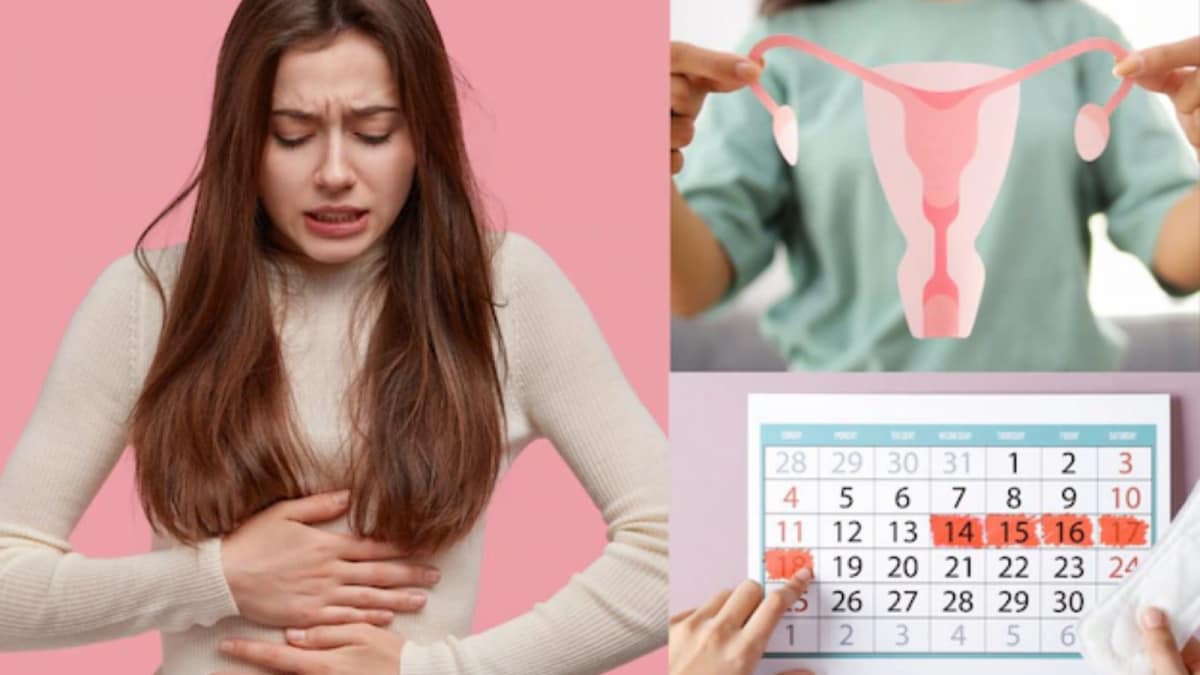Last Updated:
Girls are reaching puberty as early as 9, causing concern among parents. Learn the causes, signs, and expert advice to distinguish normal changes from PCOS risks.

Experts believe that lifestyle factors like high consumption of processed foods, obesity and sedentary habits contribute significantly to early PCOS-like symptoms. (News18)
Typically, girls begin menstruating between the ages of 12 and 13, but due to the changing lifestyles and poor dietary habits, this age has dropped to between 9 and 11 years. This trend has caused concern among many parents, although periods starting at a younger age is not necessarily a cause for alarm.
Is It Polycystic Ovary Syndrome (PCOS)?
Along with parents, many teenage girls are growing increasingly aware of PCOS symptoms and are seeking medical advice and treatment. Experts are now advising girls aged 13 to 14, and their parents, on the importance of early diagnosis and management of PCOS.
Average Age Of Menstruation Has Fallen
According to doctors cited in a recent report by The Times of India, the average age for the onset of menstruation has decreased from 12-13 years to 9-11 years. This early start often brings irregular cycles, acne, and unwanted hair growth, symptoms that can be mistaken for PCOS.
A gynaecologist from Bangalore explains that early irregular periods do not necessarily indicate PCOS. In fact, 10-15 such cases present weekly at Bangalore clinics. It’s normal for periods to be irregular initially, and light facial hair during adolescence is often just a hormonal change, not a PCOS symptom.
PCOS Or Normal Hormonal Changes?
Doctors caution against immediately assuming PCOS is the cause. Many parents worry when they notice light hair growth on their daughter’s face, unaware that hormonal fluctuations during adolescence can mimic PCOS symptoms.
Social media has amplified these concerns. Many teenage girls, after watching online videos or chatting with friends, believe they have PCOS and approach their parents about seeking treatment.
Overdiagnosis: A Growing Concern
In an interview with Times Of India, gynaecologist Dr N Venkatesh noted that teenagers often visit clinics seeking tests for PCOS due to acne and hair fall. Ultrasound scans are frequently performed, but this is where overdiagnosis becomes an issue.
Radiologists may label the presence of just one or two follicles or slightly enlarged ovaries as PCOS, causing unnecessary worry.
How To Confirm PCOS?
Doctors emphasise that PCOS diagnosis requires clear criteria, such as having at least 20 follicles at a specific stage of the menstrual cycle. Overdiagnosis among teenagers is worrying, and medical professionals urge careful evaluation.
Lifestyle Factors Behind Early Symptoms
Experts believe that lifestyle factors contribute significantly to early PCOS-like symptoms. High consumption of sweets and processed foods, obesity, sedentary habits, and stress are commonly linked to these changes.







